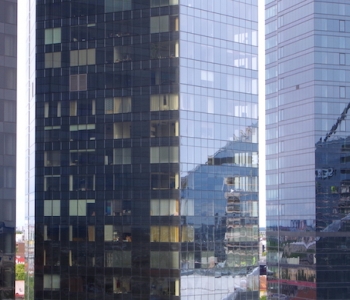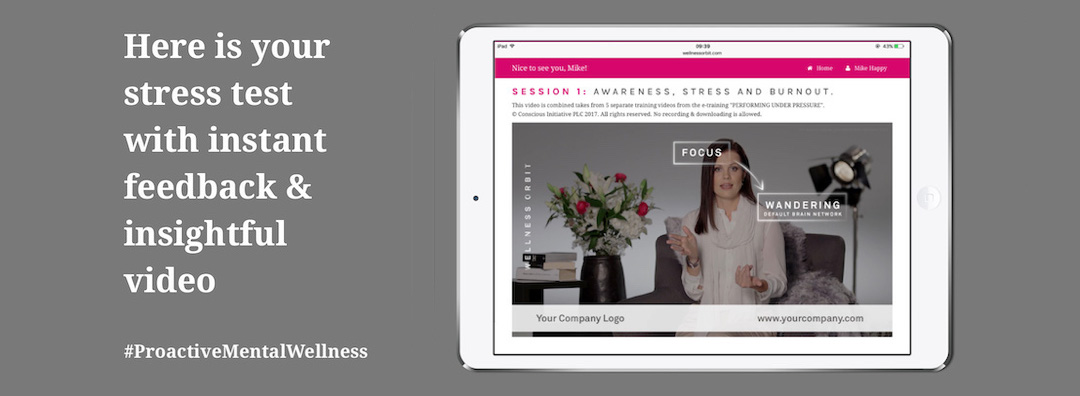How to integrate your work and life?
The old concept of work-life balance is now totally outdated. Working from home, remotely, or as a contract worker is now the new norm. The technology that we carry with us almost 24/7 means there is no longer a clear distinction between work and life. What was left of it became history with the global lockdown.
So, how do we adapt?
How do we find efficient ways for our work-life integration?
How do we deal with the daily stressors around us?
Being constantly connected has inevitably caused an attitudinal shift in the way we conduct our personal lives and work. It is one of the overwhelming reasons more people are severely stressed. It is also why we currently find ourselves amid a hidden mental health crisis that inevitably influences our work results and personal behaviors.
Our hyper-connected way of living means that we critically need to re-address the fundamental way we integrate our private life with our work responsibilities as simply striking a balance between the two represents no longer a feasible option.
Finding a more effective way to seamlessly integrate all aspects of our life will serve us well in preventing emotional fatigue, stress, work-related burnout and depression.
First and foremost we have life and then we have work. Work is important for self-realization. We can work well only when we feel well.
Today we genuinely need a proven holistic mental wellness approach that is proactive in nature and at the same time supports our mental sharpness and well-being.
The number one workplace problem is stress
The Cigna survey'[1] carried out among the employees in 23 countries last year has stated that 87% of people felt stressed at work and that 91% experience that their colleagues’ stress impacts their workplace with a higher degree of negativity. So it is no wonder that the U.S. Center for Disease Control (CDC) named work-related stress as the leading workplace health problem, ranking above physical inactivity and obesity.
Stress is an emotional experience often linked with nervousness, tension and strain, brought about by internal or external factors.
We experience workplace stress when the urgent demands and excessive pressures put upon us outweigh our own skills, experience and time limits. Due to this shortage, we are likely to feel overwhelmed and therefore unable to cope. But what tools do we have at our disposal to effectively handle the pressure?
Intrapersonal Skills as our tools
Our awareness is our intimate contact with everything; awareness connects us to objects around us and within us. It is a practical tool we can train to be controlled and directed at will.
By training our awareness we pay more attention to where we choose to place our attention or focus. Applied awareness is known to create the potential for greater self-awareness, improved impulse control, and decreased emotional reactivity to challenging events according to a study by Thompson & Gauntlett-Gilbert (2008)[2].
When untrained, our awareness is at risk of being caught by random objects, including irrelevant thoughts. This wandering awareness forcibly prevents us from switching off. It also prevents us from being able to switch between activities at will.
Our untamed awareness is like the 'monkey mind' that is constantly after novel stimuli and represents the primary reason we struggle to focus or relax. The fact that most people aren’t skilled to stop their train of thought at will merely contribute to the problem.
Constant thinking represents the primary cause of our worries. It is the overwhelming reason why we wake at 3 AM recalling whether that email included the correct attachment or if we addressed it to the appropriate person. The constant never-ending thinking isn’t helpful and is a counterproductive inner stressor that we can't escape from until we lack practical intrapersonal skills.
 Thinking of something else vs being fully present – an illustration from Wellness Orbit e-training 'Performing Under Pressure'.
Thinking of something else vs being fully present – an illustration from Wellness Orbit e-training 'Performing Under Pressure'.
Learning to focus brings good work results and allows to integrate the different aspects of life
The irony of thinking about home when at work and thinking of work when at home is a modern-day paradox and is something we often do unintentionally.
By learning to use and direct our awareness, we can focus on the actual task at hand. Meaning, while we are working, we can stay properly focused on our occupational tasks, and when we are resting or dealing with family matters, we can enjoy our home environment and time with our loved ones.
The same inevitably goes for efficiently conducting a meeting or carrying out any task. Be it taking a Zoom or Skype call, giving a presentation, doing research or homework, or being actively engaged with sports or hobbies.
The applicable examples are abundant, but the outcome is always the same – we are 100% present in the flow, managing our unfolding real-time situation well. No more being half present, thinking about one thing while pretending to focus on another.
Once we learn to accurately identify where our awareness is, we can unlock the limitless potential of noticing our unconscious reactions associated with our thoughts and feelings. We can properly tame our 'monkey mind' and liberate ourselves from the 'autopilot' mode we almost constantly depend upon the known circumstances.
Awareness-based intrapersonal skills as efficient work tools
Merely noticing where our awareness grants us the freedom to discern what is important at any given moment, be it related to our personal life or work. The directing of our own awareness represents the most fundamental intrapersonal skill.
Our applicable intrapersonal skills act as the fundamental foundation of work-life integration and formulate a substantial base for our excellent skills and business success.
As we have only one life, the more correct term would be life-work integration. You need to integrate your work into your life in a way that is suitable and feels humane for you. Your life, your terms.
Once the integration is seamless, life becomes easier. That is why leading all the processes with awareness matters.
Learning about awareness in practice and comprehending how to lead all the critical processes in your mind is what you can master. That is why we developed the world's first fully digital mental wellness gym for you and your team.
The good news to all the mindfulness fans out there is that the active use of awareness enables you to overcome the limitations of passive mindfulness and mediation practices. It opens up access to noticing, creativity, intuition, insights, etc.
By learning, training and directing intrapersonal skills, a vast amount of inner potential will open up. It can ultimately advance our human capacity, steering us towards better mental wellness and out of the health and economic crisis.
CONCLUSIONS ABOUT LIFE-WORK INTEGRATION
If we are well, then we live well and work efficiently. Life-work integration comes down to being present, thriving with work and life as you are capable to keep your inner calm regardless of the challenges you face.
When people possess excellent intrapersonal skills, they lead themselves more effectively. Employees with excellent self-leadership skills are more trustworthy, healthy and positive.
So, what are you waiting for?
Promptly take your talented team to the mental wellness gym and graciously allow fundamental discovery on how to stay productive and healthy at the same time.
Do it NOW! Your profit and good interpersonal relations depend on it much more than you are currently aware of.

► References:
[1] 360 WELL-BEING SURVEY 2019 by Cigna
[2] Killingsworth & Gauntlett-Gilbert, "Mindfulness with Children and Adolescents: Effective Clinical Application" Clinical Child Psychology and Psychiatry; 13(3):395-407, August 2008
This blog post is written by Kaur Lass



